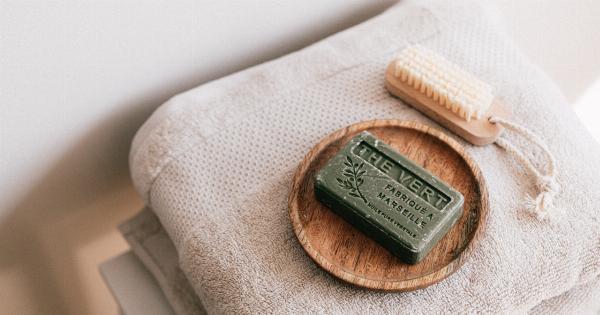Uric acid is a waste product that is formed when the body breaks down purines found in certain foods and drinks. The uric acid is usually filtered out of the body by the kidneys and expelled through urine.
However, when there is an excess of uric acid in the blood, it can lead to the formation of urate crystals in the joints and other tissues, causing inflammation and pain. This condition is known as gout.
Gout is a common form of arthritis and can affect anyone. However, it is more common in men than in women and those who are overweight, and those who consume foods high in purines.
It is therefore important to keep uric acid levels in check by making necessary diet and lifestyle changes.
In this article, we will be discussing the top 30 nuts that can help reduce uric acid levels and prevent the onset of gout.
1. Almonds
Almonds are a rich source of vitamin E and magnesium, both of which have been found to be effective in reducing uric acid levels.
Vitamin E is an antioxidant that helps neutralize free radicals that can cause inflammation, while magnesium plays a key role in regulating glucose metabolism.
2. Walnuts
Walnuts are a good source of omega-3 fatty acids, which have anti-inflammatory properties that can help reduce uric acid levels. They are also rich in antioxidants such as vitamin E, which can help reduce oxidative stress in the body.
3. Pistachios
Pistachios are a good source of plant-based protein, fiber, and healthy fats, all of which can have a positive impact on gout. They also contain potassium, which can help neutralize uric acid in the body.
4. Cashews
Cashews are a good source of copper, which helps regulate uric acid levels in the body. They are also rich in magnesium and fiber which can help regulate blood sugar levels and improve digestion.
5. Pecans
Pecans are rich in antioxidants that can help reduce oxidative stress and inflammation in the body. They are also a great source of monounsaturated fats, fiber, and vitamins A and E.
6. Macadamia nuts
Macadamia nuts are one of the richest sources of monounsaturated fats, which can help reduce inflammation and lower uric acid levels.
They are also high in magnesium, potassium, and phosphorus which can help with bone health and regulate electrolyte balance in the body.
7. Brazil nuts
Brazil nuts are a great source of selenium, which has been found to have anti-inflammatory properties. They are also rich in magnesium, vitamin E, and healthy fats which can help lower uric acid levels.
8. Hazelnuts
Hazelnuts are a good source of vitamin E, fiber, and healthy fats. They are also rich in flavonoids, which can help reduce inflammation in the body and lower uric acid levels.
9. Pine nuts
Pine nuts are a rich source of magnesium, which is essential for regulating uric acid levels in the body. They are also high in monounsaturated fats and plant-based protein, making them a great snack option for those with gout.
10. Chestnuts
Chestnuts are a low-purine nut, making them an excellent option for those with gout. They are also rich in potassium, vitamin C, and fiber, which can help improve overall health and reduce uric acid levels.
11. Peanuts
Peanuts are a good source of protein, fiber, and healthy fats. They are also rich in niacin, which can help improve cholesterol levels and reduce inflammation in the body.
However, peanuts are also high in purines, so moderation is key for those with gout.
12. Sunflower seeds
Sunflower seeds are high in vitamin E, an antioxidant that can help reduce inflammation and oxidative stress in the body. They are also a good source of magnesium and healthy fats, making them a great snack option for those with gout.
13. Pumpkin seeds
Pumpkin seeds are a rich source of zinc, which can help boost immunity and reduce inflammation in the body. They are also high in healthy fats, fiber, and magnesium, making them a nutrient-dense snack option for those with gout.
14. Flaxseeds
Flaxseeds are a great source of omega-3 fatty acids, which can help reduce inflammation in the body and lower uric acid levels. They are also high in fiber and antioxidants, making them a perfect addition to smoothies, salads, or oatmeal.
15. Chia seeds
Chia seeds are a nutrient-dense seed that is rich in protein, fiber, healthy fats, and antioxidants. They are also a great source of calcium and magnesium, which can help regulate uric acid levels and improve bone health.
16. Sesame seeds
Sesame seeds are a rich source of copper, a mineral that can help regulate uric acid levels in the body. They are also high in healthy fats, fiber, and plant-based protein, making them a great snack option for those with gout.
17. Hemp seeds
Hemp seeds are a great source of omega-3 fatty acids, plant-based protein, and fiber. They are also rich in magnesium and potassium, which can help regulate uric acid levels and improve overall health.
18. Poppy seeds
Poppy seeds are a rich source of magnesium, which can help regulate uric acid levels in the body. They are also high in fiber and healthy fats, making them a nutritious snack option for those with gout.
19. Black sesame seeds
Black sesame seeds are a rich source of copper, magnesium, and healthy fats, all of which can help regulate uric acid levels in the body.
They are also high in plant-based protein and fiber, making them a great addition to smoothies, salads, or oatmeal.
20. Brazil nut butter
Brazil nut butter is a great alternative to peanut butter for those with gout. It is a great source of selenium, magnesium, and healthy fats, all of which can help reduce uric acid levels and improve overall health.
21. Almond butter
Almond butter is a great source of vitamin E, magnesium, protein, and healthy fats. It is also a low-purine nut butter, making it an excellent option for those with gout.
22. Cashew butter
Cashew butter is a rich source of copper, magnesium, and fiber, all of which can help reduce uric acid levels and improve overall health. It is also low in purines, making it a great option for those with gout.
23. Walnut butter
Walnut butter is a great source of omega-3 fatty acids, antioxidants, and healthy fats. It is also low in purines, making it a great option for those with gout.
24. Pecan butter
Pecan butter is a great source of antioxidants, fiber, and healthy fats, all of which can help reduce inflammation in the body and lower uric acid levels.
25. Pistachio butter
Pistachio butter is a great source of plant-based protein, fiber, and healthy fats. It is also a good source of potassium, making it a great option for those with gout.
26. Sunflower seed butter
Sunflower seed butter is a great alternative to peanut butter for those with gout. It is a great source of vitamin E, magnesium, and healthy fats.
27. Pumpkin seed butter
Pumpkin seed butter is a great source of zinc, magnesium, and healthy fats, all of which can help reduce inflammation and lower uric acid levels.
28. Flaxseed butter
Flaxseed butter is a great source of omega-3 fatty acids, fiber, and antioxidants. It is also low in purines, making it a great option for those with gout.
29. Chia seed butter
Chia seed butter is a great source of protein, fiber, and healthy fats. It is also rich in calcium and magnesium, making it a great option for those with gout.
30. Sesame seed butter
Sesame seed butter is a great source of copper, magnesium, and healthy fats. It is also low in purines, making it a great option for those with gout.
Conclusion
As you have learned, including nuts in your diet can help lower uric acid levels and prevent the onset of gout.
These nutrient-dense foods are rich in vitamins, minerals, fiber, and healthy fats that can help improve overall health and reduce inflammation in the body.
It is important to note, however, that while nuts are generally considered a healthy snack option, they may not be suitable for everyone.
Those with nut allergies and those who are on a low-fat or low-oxalate diet should consult with a healthcare professional before adding nuts to their diet.





























